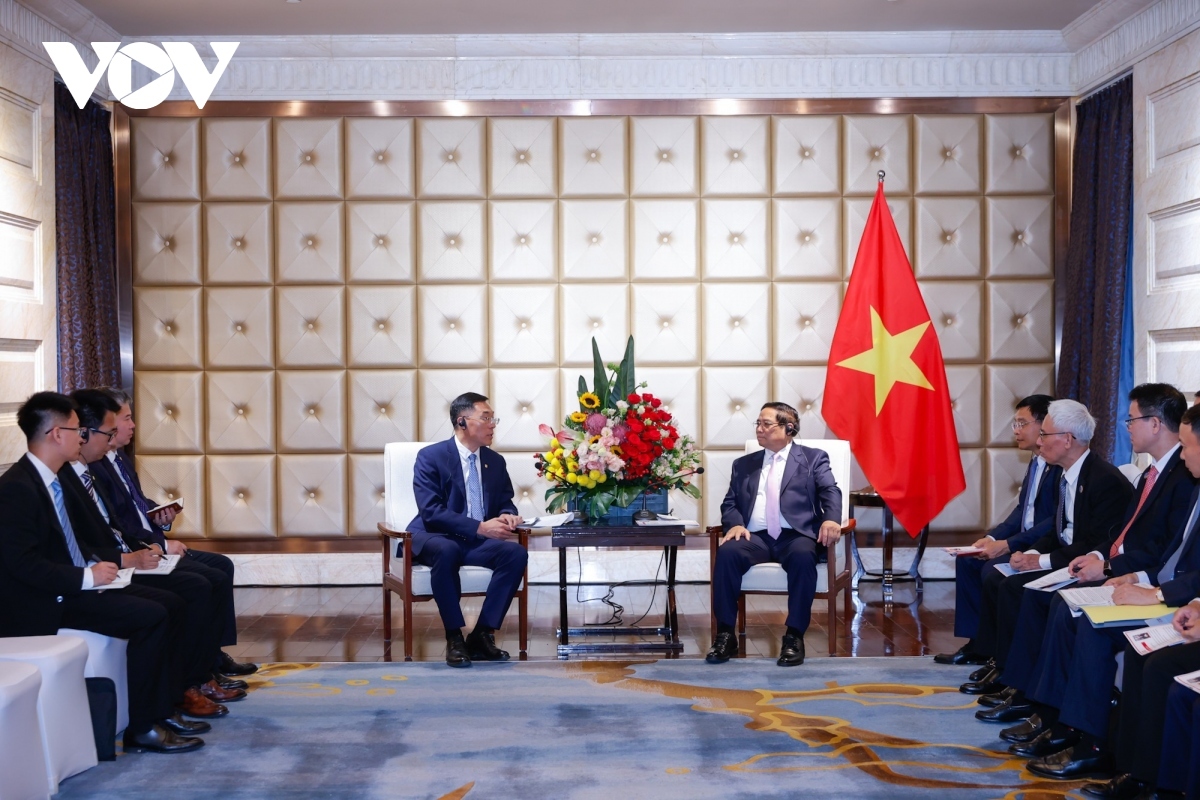What will Vietnam expect from WEF Annual Meeting of New Champions 2024
Opening with the theme of “Next Frontiers for Growth”, the meeting will bring together 1,600 leaders from business, government, civil society, international organisations, and academia to collectively delve into innovative drivers and paths for global economic advancement.
Vietnamese Prime Minister Pham Minh Chinh is scheduled to deliver a keynote speech at the opening ceremony, take part in other sessions of the meeting, and meet with reputable investors.
The meeting therefore presents a prime opportunity for Vietnam to directly introduce its potential, strategies, and incentives for developing future economic industries. This represents a hugely important occasion in the context that many large economic corporations are urgently looking for venues to set up production and business bases in the near future.
New room for growth
Economist Le Duy Binh, CEO of Economica Vietnam - a private consulting and research firm specialising in development economics, told Tuoi Tre newswire that the outstanding economic growth the country has recorded in recent times shows its economy is more resilient to external shocks and is able to bring into full play endogenous strengths.
The fact is that despite global economic fluctuations, Vietnam has always maintained steady growth and it has even been among global economies with high growth.
The Government encourages investments into new fields such as a digital economy, the green economy, and energy transition. This shows that the country has better adapted to the shift in the global supply chain, by effectively exploiting fields which have high added value.
Most notably, the Vietnamese digital economy has in recent years achieved a fairly high growth rate of about 20% per year, three times the GDP growth rate. This has significantly contributed to the country’s overall economic transformation, improving competitiveness, as well as creating new room for more growth.
Meanwhile, Dr. Nguyen Quoc Viet, deputy director of the Vietnam Institute for Economics and Policy Research (VEPR), said the WEF highly appreciated Vietnam for reforming laws and administrative procedures, thereby creating a more conducive trade and business climate. This in turn helps international financial organisations such as the World Bank (WB) to upgrade the country’s business and investment environment indexes in terms of investment facilitation, business start-up, administrative procedures, and access to resources.
High expectations in key fields

Vietnamese Prime Minister Pham Minh Chinh meets CRRC chairman Sun Yongcai and PowerChina deputy general manager Wang Xiaojun in Dallian, China, on June 24
Currently Vietnam needs a large amount of capital for major projects on renewable energy in order to keep up with emissions reduction goals. Under the approved National Power Development Plan VIII, the country is expected to attract approximately US$135 billion in investment capital as it works to implement energy transition projects up to 2030.
Towards building a new global economy, it has developed a plan specifically to create fresh momentum for the semiconductor industry. However, local businesses do not have enough potential, while natural resources, human resources, facilities, and energy must be exploited and trained as soon as possible.
What the country needs is to secure agreements on technology transfer with global semiconductor chip manufacturers. Jose Fernandez, Under Secretary for Economic Growth, Energy, and the Environment of the United States, recently told Nikkei Asia that Vietnam has attracted dozens of companies in the semiconductor industry, with many more US companies keen to enter if the country has enough renewable energy to meet their green goals.
Moreover, human resources play a vital role in all processes, meaning that investing in human resource training is a must. Indeed, there is no shortage of reputable global educators attending WEF meetings to seek investment markets.
Vietnam expects to learn valuable experiences from this meeting which can help to remove obstacles to improve the quality of investment capital flows and assist its businesses to engage deeply in the value chain and record more profound growth.
Source: VOV



